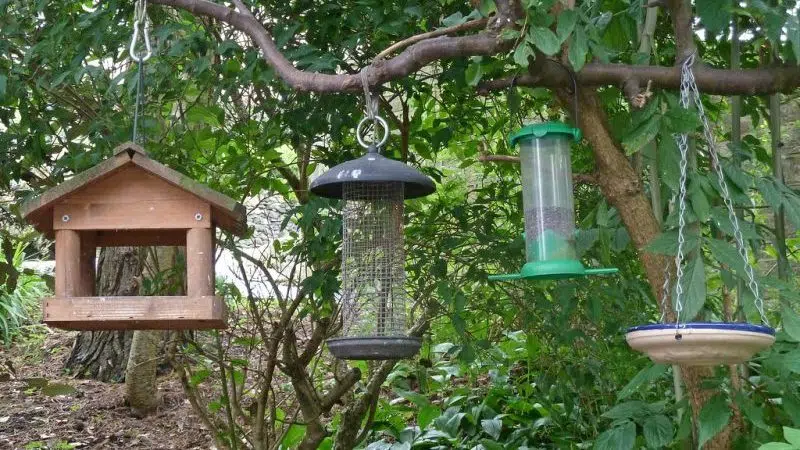SPRINGFIELD, Ill. – The Illinois Department of Natural Resources says if you’ve got a bird feeder at home, stop using it for now.
It’s not a requirement — but the DNR’s Chris Jacques, a wildlife disease expert, says it’s a really good idea, given the continuing spread of one form of avian influenza.
“Just to minimize the likelihood that any birds that eat seeds or grains, not come in contact with each other,” said Jacques.
H5N1 bird flu was first discovered in Illinois last month, but so far, has not been detected in many songbird species. Other wild birds, however, do have it.
“Stop feeding them, and stop filling these bird feeders,” said Jacques, noting that many of the birds will likely have other sources of food. “Also, clean them out, with a solution of bleach and water. Make sure they’re clean, and make sure that any bird seed at the base of them is cleaned up.”
What’s more, if you come across a dead bald eagle, Jacques says call the DNR right away.
More information from a DNR press release:
Avoid feeding wild birds in close proximity to domestic flocks.
If five or more deceased wild birds are observed in one location, an IDNR district wildlife biologist
should be contacted. Contact information for district wildlife biologists can be found at
https://www.wildlifeillinois.org/sidebar/contact-an-idnr-district-wildlife-biologist/. USDA Wildlife
Services also may be contacted at 1-866-487-3297.In addition, IDNR requests all occurrences of deceased or sick bald eagles be reported to the agency.
When disposing of any deceased wild birds, rubber gloves and a mask should be worn, and the carcass should be double-bagged in sealed plastic bags. The bags can be buried away from scavengers or placed in the garbage if approved by the local waste service provider. Anyone handling deceased birds should thoroughly wash their hands and any other clothes or tools with soap and water following disposal.
With spring turkey season underway, IDNR notes that wild turkeys are less likely to contract HPAI given their behavior and the habitats they occupy. However, turkey hunters can protect themselves by thoroughly cooking game meat to an internal temperature of 165 degrees Fahrenheit and implementing other guidance found here at this link:
https://www.aphis.usda.gov/publications/animal_health/2015/fsc_hpai_hunters.pdf




